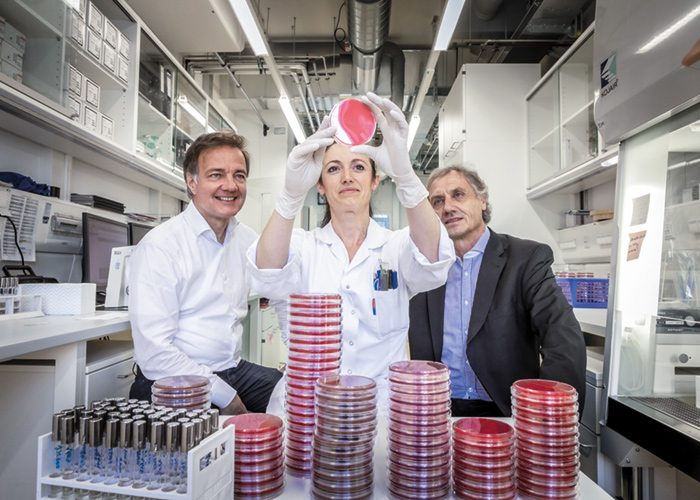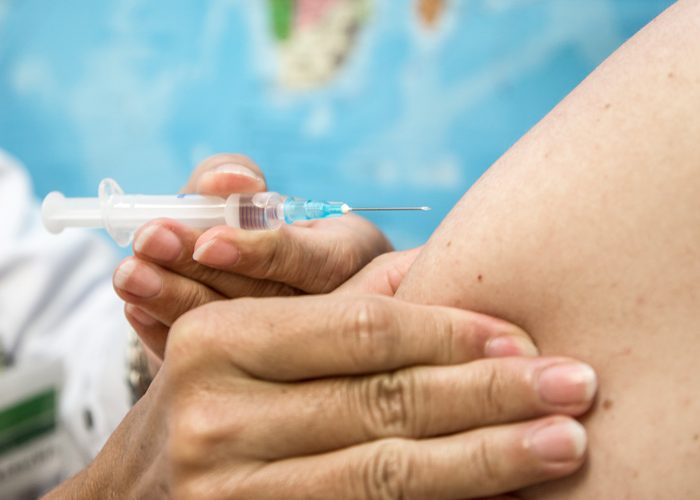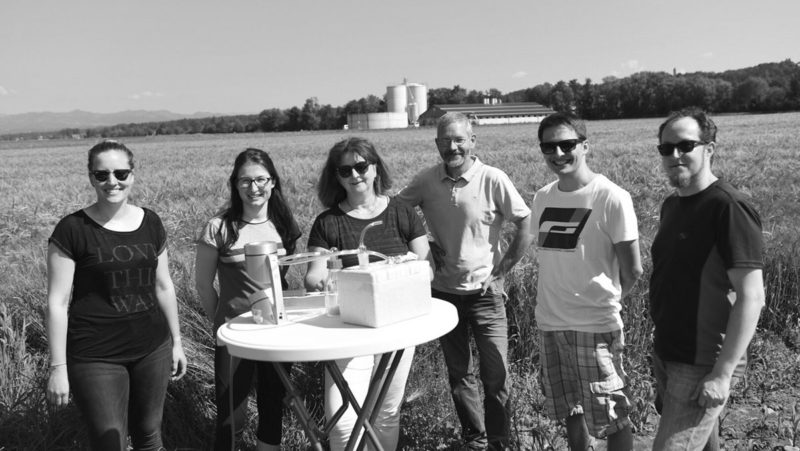
Employees
Research field/Range of products
Water Hygiene: state-accredited testing and inspection body for drinking water, mineral water, bathing water and water in technical areas of application.
Environmental Hygiene: microbiological examinations of environmental samples (waste, waste water, soil, air).
Industrial Hygiene: examinations of pharmaceuticals or products for the food industry (packaging materials, etc.), …
Travel Medicine: services include general vaccination, travel vaccination, officially recognised yellow fever vaccination centre, personal and telephone vaccination advice.
Research cooperation


christine.rechling@medunigraz.at | +43 (0)316/385 73701 | hygiene.medunigraz.at
Liegt da was in der Luft?
Keimemissionen durch Tierhaltung ist ein Forschungsthema der Umwelthygiene-Experten im ZWT. Durch Kooperationen profitiert das Institut von Synergien – regional und international.
„Zuerst messen wir den Anteil der Bakterien und Pilze in der Luft direkt beim Schweine- oder Geflügelmastbetrieb. Dann in 50, 100, 500 und 600 Metern Entfernung. An einer Messung sind bis zu 15 Personen beteiligt und gemessen wird alle 2 bis 3 Wochen auf Höfen in der Steiermark.“
Hygiene im Alltag: 5 Fragen und Antworten
Egal ob bei der Arbeit am Schreibtisch oder bei privaten Besuchen im Krankenhaus: Hygiene spielt eine zentrale Rolle. Worauf es dabei ankommt, weiß Andrea Grisold vom Diagnostik- und Forschungsinstituts (D&F) für Hygiene, Mikrobiologie und Umweltmedizin der Med Uni Graz.
Mehr als „nur“ Sauberkeit im Krankenhaus
Was versteht man eigentlich unter Hygiene? Woran und für wen arbeiten Hygieneinstitute? Ein Einblick von Ivo Steinmetz, Leiter des Diagnostik- und Forschungsinstituts (D&F) für Hygiene, Mikrobiologie und Umweltmedizin der Med Uni Graz.
Zum 200. Mal jährt sich der Geburtstag von Ignaz Semmelweiß im Juli 2018. Der Wissenschaftler und Geburtshelfer gilt als Pionier der Händehygiene, was Anlass für zahlreiche Veranstaltungen in ganz Österreich ist. Das Thema Hygiene spielt auch im ZWT eine zentrale Rolle, sind doch Teilbereiche des Diagnostik- und Forschungsinstituts (D&F) für Hygiene, Mikrobiologie und Umweltmedizin der Med Uni Graz im ZWT angesiedelt.
![[EN] ZWT Graz](https://en.zwt-graz.at/wp-content/uploads/sites/2/2021/07/ZWT-Manual_EN-01_web.png)


